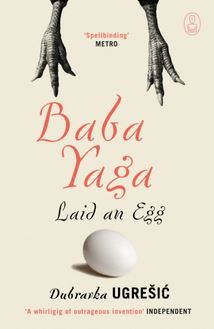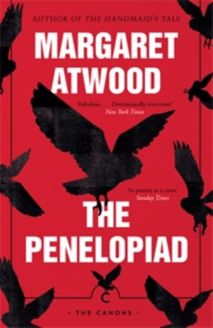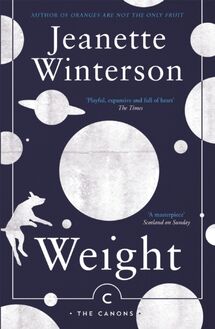-
 Univers
Univers
-
 Ebooks
Ebooks
-
 Livres audio
Livres audio
-
 Presse
Presse
-
 Podcasts
Podcasts
-
 BD
BD
-
 Documents
Documents
-
- Cours
- Révisions
- Ressources pédagogiques
- Sciences de l’éducation
- Manuels scolaires
- Langues
- Travaux de classe
- Annales de BEP
- Etudes supérieures
- Maternelle et primaire
- Fiches de lecture
- Orientation scolaire
- Méthodologie
- Corrigés de devoir
- Annales d’examens et concours
- Annales du bac
- Annales du brevet
- Rapports de stage
La lecture à portée de main
Vous pourrez modifier la taille du texte de cet ouvrage
Découvre YouScribe en t'inscrivant gratuitement
Je m'inscrisDécouvre YouScribe en t'inscrivant gratuitement
Je m'inscrisEn savoir plus
Vous pourrez modifier la taille du texte de cet ouvrage
En savoir plus

Description
Sujets
Informations
| Publié par | Canongate Books |
| Date de parution | 04 juin 2009 |
| Nombre de lectures | 0 |
| EAN13 | 9781847676504 |
| Langue | English |
Informations légales : prix de location à la page 0,0400€. Cette information est donnée uniquement à titre indicatif conformément à la législation en vigueur.
Extrait
Jeanette Winterson 's first novel, Oranges Are Not the Only Fruit , won the Whitbread Prize for Best First Novel. Since then she has published many other novels, including The Passion, Written on the Body, and The PowerBook, a collection of short stories, a book of essays, children's picture books, and the memoir Why Be Happy When You Could Be Normal? She adapted her work for TV, film and stage. In 2006 she was awarded an OBE for services to literature.
Source note: the author referred to Robert Graves’ The Greek Myths, Volume One and Volume Two in her research for this book.
For Deborah Warner, who lifted the weight.
Sedimentary rock is formed over vast expanses of time, as layer upon layer of sediment is deposited on the sea bottom.
Being formed in this way, such rock is usually arranged in a succession of horizontal bands, or strata, with the oldest strata lying at the bottom.
Each band will often contain the fossilised remains of the plants and animals that died at the time at which the sediment was originally laid down.
The strata of sedimentary rock are like the pages of a book, each with a record of contemporary life written on it. Unfortunately, the record is far from complete. The process of sedimentation in any one place is invariably interrupted by new periods in which sediment is not laid down, or existing sediment is eroded. The succession of layers is further obscured as strata become twisted or folded, or even completely inverted by enormous geological forces, such as those involved in mountain building …
The strata of sedimentary rock are like the pages of a book …
Each with a record of contemporary life written on it …
Unfortunately the record is far from complete …
The record is far from complete …
CONTENTS
Introduction
I want to tell the story again
Weight of the World
Heracles
Thought-Wasp
Three Golden Apples
No Way Out…
But Through
Leaning on the Limits of Myself
Private Mars
Hero of the World
Woof!
Boundaries
Desire
I want to tell the story again
Introduction
Choice of subject, like choice of lover, is an intimate decision.
Decision, the moment of saying yes, is prompted by something deeper; recognition. I recognise you; I know you again, from a dream or another life, or perhaps even from a chance sighting in a café, years ago.
These chance sightings, these portents, these returns, begin the unconscious connection with the subject, an unconscious connection that waits for an ordinary moment of daylight to show its face.
When I was asked to choose a myth to write about, I realised I had chosen already. The story of Atlas holding up the world was in my mind before the telephone call had ended. If the call had not come, perhaps I would never have written the story, but when the call did come, that story was waiting to be written.
Re-written. The recurring language motif of Weight is ‘I want to tell the story again.’
My work is full of Cover Versions. I like to take stories we think we know and record them differently. In the re-telling comes a new emphasis or bias, and the new arrangement of the key elements demands that fresh material be injected into the existing text.
Weight moves far away from the simple story of Atlas’s punishment and his temporary relief when Hercules takes the world off his shoulders. I wanted to explore loneliness, isolation, responsibility, burden, and freedom too, because my version has a very particular end not found elsewhere.
Of course I wrote it directly out of my own situation. There is no other way.
Weight has a personal story broken against the bigger story of the myth we know and the myth I have re-told. I have written this personal story in the First Person, indeed almost all of my work is written in the First Person, and this leads to questions of autobiography.
Autobiography is not important. Authenticity is important. The writer must fire herself through the text, be the molten stuff that welds together disparate elements. I believe there is always exposure, vulnerability, in the writing process, which is not to say it is either confessional or memoir. Simply, it is real.
Right now, human beings as a mass, have a gruesome appetite for what they call ‘real’, whether it’s Reality TV or the kind of plodding fiction that only works as low-grade documentary, or at the better end, the factual programmes and biographies and ‘true life’ accounts that occupy the space where imagination used to sit.
Such a phenomenon points to a terror of the inner life, of the sublime, of the poetic, of the non-material, of the contemplative.
Against all this, a writer such as myself, who believes in the power of story telling for its mythic and not its explanatory qualities, and who believes that language is much more than information, must row against the tide rather like Siegfried rowing against the current of the Rhine.
The Myth series is a marvellous way of telling stories – re-telling stories for their own sakes, and finding in them permanent truths about human nature. All we can do is keep telling the stories, hoping that someone will hear. Hoping that in the noisy echoing nightmare of endlessly breaking news and celebrity gossip, other voices might be heard, speaking of the life of the mind and the soul’s journey.
Yes, I want to tell the story again.
I want to tell the story again
The free man never thinks of escape.
In the beginning there was nothing. Not even space and time. You could have thrown the universe at me and I would have caught it in one hand. There was no universe. It was easy to bear.
This happy nothing ended fifteen aeons ago. It was a strange time, and what I know is told to me in radioactive whispers; that’s all there is left of one great shout into the silence.
What is it that you contain? The dead. Time. Light patterns of millennia opening in your gut. Every minute, in each of you, a few million potassium atoms succumb to radioactive decay. The energy that powers these tiny atomic events has been locked inside potassium atoms ever since a star-sized bomb exploded nothing into being. Potassium, like uranium and radium, is a long-lived radioactive nuclear waste of the supernova bang that accounts for you.
Your first parent was a star.
It was hot as hell in those days. It was Hell, if hell is where the life we love cannot exist. Those ceaseless burning fires and volcanic torments are lodged in us as ultimate fear. The hells we invent are the hells we have known. Hell is; was not, is not, cannot. Science calls it the world before life began – the Hadean period. But life had begun, because life is more than the ability to reproduce. In the molten lava spills and cratered rocks, life longed for life. The proto, the almost, the maybe. Not Venus. Not Mars. Earth.
Planet Earth, that wanted life so badly, she got it.
Moving forward a few billion years, there was a miracle. At least that’s what I call the unexpected fact that changes the story. Earth had bacterial life, but no oxygen, and oxygen was a deadly poison. Then, in a quiet revolution as explosive in its own way as a star, a new kind of bacteria, cyanobacteria started to photosynthesise – and a bi-product of photosynthesis is oxygen. Planet earth had a new atmosphere. The rest is history.
Well not quite. I could list for you the wild optimism of the Cambrian era, pushing up mountains like grass grows daisies, or the Silurian dream-days of starfish and gastropods. About 400 million years ago, shaking salt water from their fins and scales, the first land animals climbed out of the warm lagoons of the vast coral reefs. The Triassic and Jurassic periods belong to the dinosaurs, efficient murder weapons, common as nightmares. Then three or four million years ago – chancy and brand new – what’s this come here – a mammoth and something like a man?
* * *
The earth was amazed. Earth was always strange and new to herself. She never anticipated what she would do next. She never guessed the coming wonder. She loved the risk, the randomness, the lottery probability of a winner. We forget, but she never did, that what we take for granted is the success story. The failures have disappeared. This planet that seems so obvious and inevitable is the jackpot. Earth is the blue ball with the winning number on it.
Make a list. Look around you. Rock, sand, soil, fruit trees, roses, spiders, snails, frogs, fish, cattle, horses, rainfall, sunshine, you and me . This is the grand experiment called life. What could be more unexpected?
All the stories are here, silt-packed and fossil-stored. The book of the world opens anywhere, chronology is one method only and not the best. Clocks are not time. Even radioactive rock-clocks, even gut-spun DNA, can only tell time like a story.
When the universe exploded like a bomb, it started ticking like a bomb too. We know our sun will die, in another hundred million years or so, then the lights will go out and there will be no light to read by any more.
‘Tell me the time’ you say. And what you really say is ‘Tell me a story.’
Here’s one I haven’t been able to put down.
Weight of the World
My father was Poseidon. My mother was the Earth.
My father loved the strong outlines of my mother’s body. He loved her demarcations and her boundaries. He knew where he stood with her. She was solid, certain, shaped and material.
My mother loved my father because he recognised no boundaries. His ambitions were tidal. He swept, he sank, he flooded, he re-formed. Poseidon was a deluge of a man. Power flowed off him. He was deep, sometimes calm, but never still.
My mother and father teemed with life. They were life. Creation depended on them and had done so before there was air or fire. They sustained so much. They were so much. To each other they were irresistible.
Both were volatile. My father obviously
-
 Univers
Univers
-
 Ebooks
Ebooks
-
 Livres audio
Livres audio
-
 Presse
Presse
-
 Podcasts
Podcasts
-
 BD
BD
-
 Documents
Documents
-
Jeunesse
-
Littérature
-
Ressources professionnelles
-
Santé et bien-être
-
Savoirs
-
Education
-
Loisirs et hobbies
-
Art, musique et cinéma
-
Actualité et débat de société
-
Jeunesse
-
Littérature
-
Ressources professionnelles
-
Santé et bien-être
-
Savoirs
-
Education
-
Loisirs et hobbies
-
Art, musique et cinéma
-
Actualité et débat de société
-
Actualités
-
Lifestyle
-
Presse jeunesse
-
Presse professionnelle
-
Pratique
-
Presse sportive
-
Presse internationale
-
Culture & Médias
-
Action et Aventures
-
Science-fiction et Fantasy
-
Société
-
Jeunesse
-
Littérature
-
Ressources professionnelles
-
Santé et bien-être
-
Savoirs
-
Education
-
Loisirs et hobbies
-
Art, musique et cinéma
-
Actualité et débat de société
- Cours
- Révisions
- Ressources pédagogiques
- Sciences de l’éducation
- Manuels scolaires
- Langues
- Travaux de classe
- Annales de BEP
- Etudes supérieures
- Maternelle et primaire
- Fiches de lecture
- Orientation scolaire
- Méthodologie
- Corrigés de devoir
- Annales d’examens et concours
- Annales du bac
- Annales du brevet
- Rapports de stage















